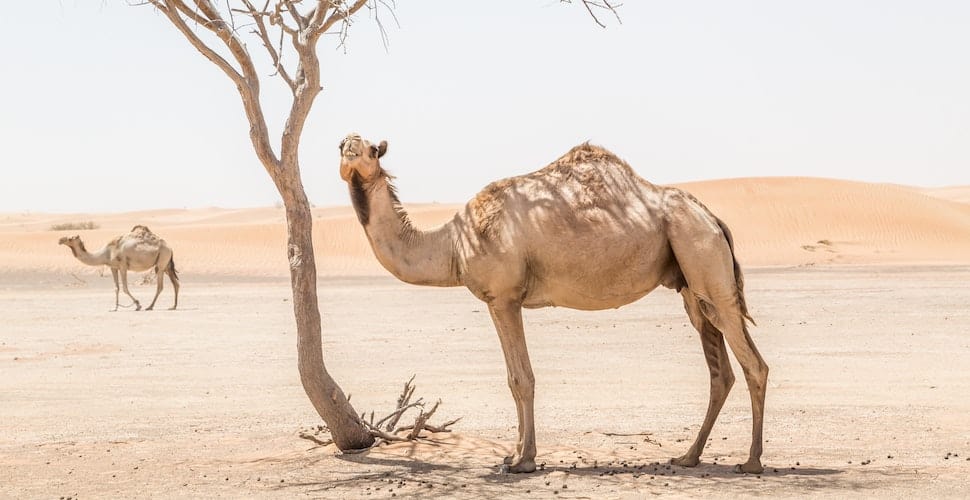As millions of homebound Ethiopian children find themselves at greater risk of forced labor and marriage, one charity has found a new way to protect them: camel libraries.
Ethiopia’s schools have been closed since mid-March as part of a lockdown enforced to fight the coronavirus pandemic, leading to what experts fear is an increased risk of forced labor and child marriage for the country’s children.
Recognizing that continuing their education is key to preventing exploitation, the charity Save the Children has deployed over 20 camels to bring storybook-filled boxes to children in the country’s remote Somali region.
Led by community volunteers, the camels spend two and half days in each village, allowing for a temporary library to be set up; children can take books home and give them back when the camel libraries return the following week.
The scheme has so far helped to continue the education of 22,000 children across 33 villages.
Reuters reports:
“The scale of this crisis is huge, but we are determined to meet the needs of the most vulnerable and ensure no child is worse off at the end of this pandemic,” said Ekin Ogutogullari, country director for Save the Children, the charity behind the scheme.
“We are ensuring that children still continue to read and learn, despite the fact that they are out of school,” he told the Thomson Reuters Foundation.
Schools have long been recognized as an important part of the fight against modern slavery.
In addition to educating children and setting them up to have future opportunities, they can protect children from forced labor, violence, abuse, and missed meals.
In a Save the Children survey of 30 Ethiopian children last month, many said they were worried about the risk of child marriage and labor—with one noting that children in the Somali region were having to work as herders or firewood collectors while schools are closed.
Save the Children first launched its camel libraries a decade ago, adapting them to fit the needs of children during the pandemic.
The success of the camel libraries is a testament to the importance of creativity in continuing to develop new and innovative ways to fight modern slavery.







Freedom United is interested in hearing from our community and welcomes relevant, informed comments, advice, and insights that advance the conversation around our campaigns and advocacy. We value inclusivity and respect within our community. To be approved, your comments should be civil.
Send information about this to all the national library associations and ask them to sponsor. You might get lucky.